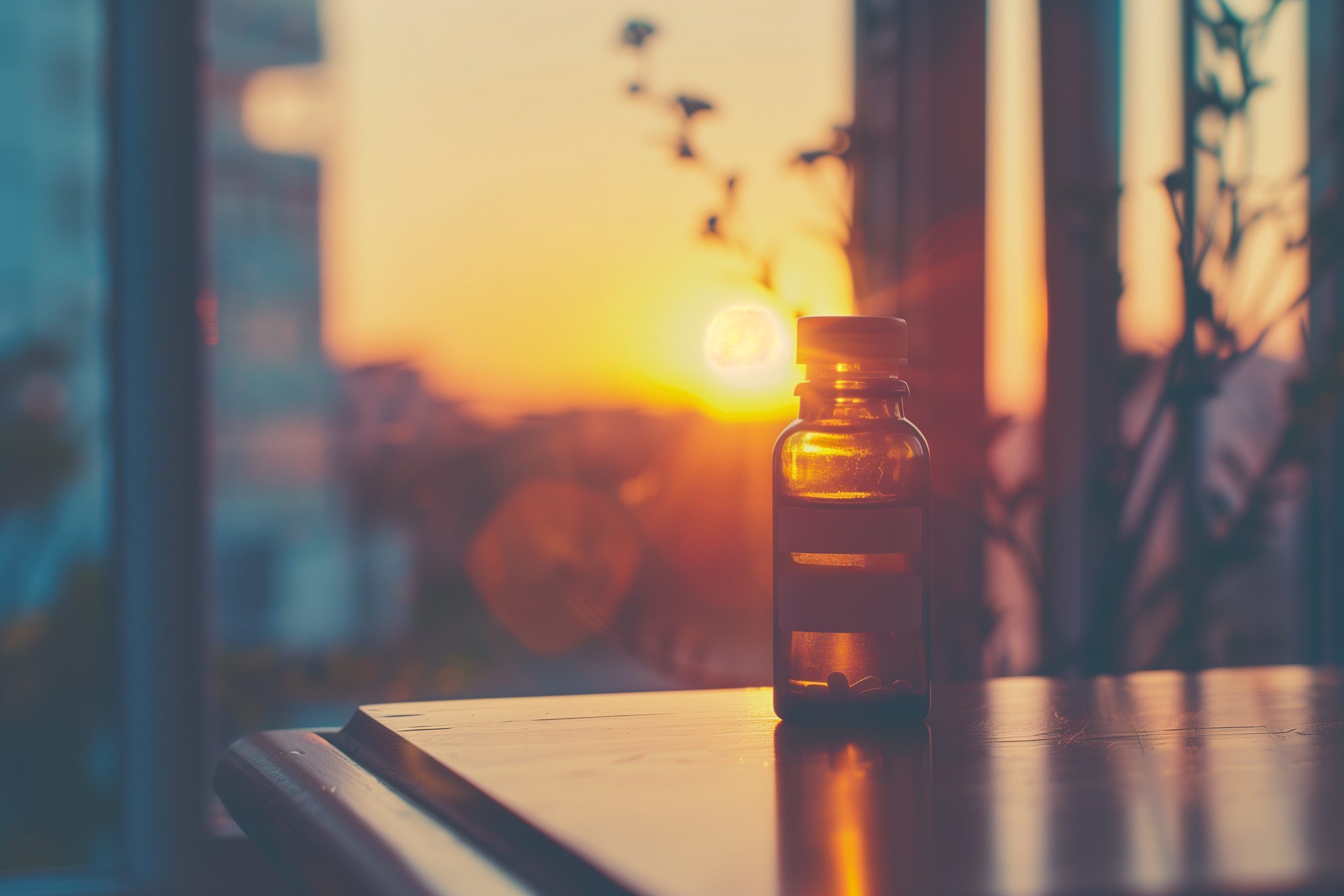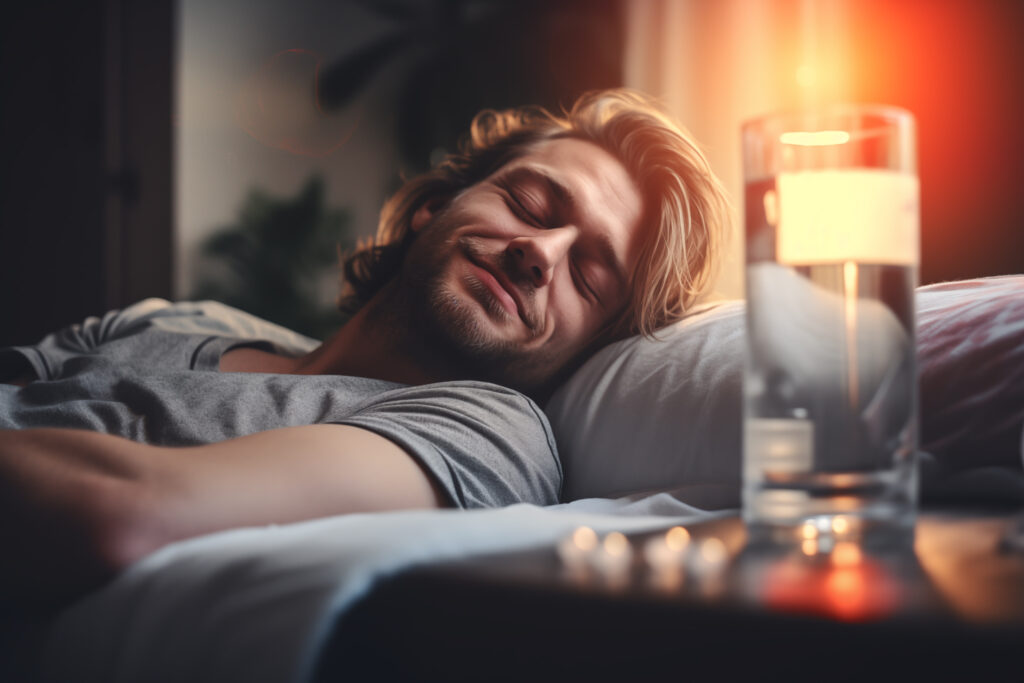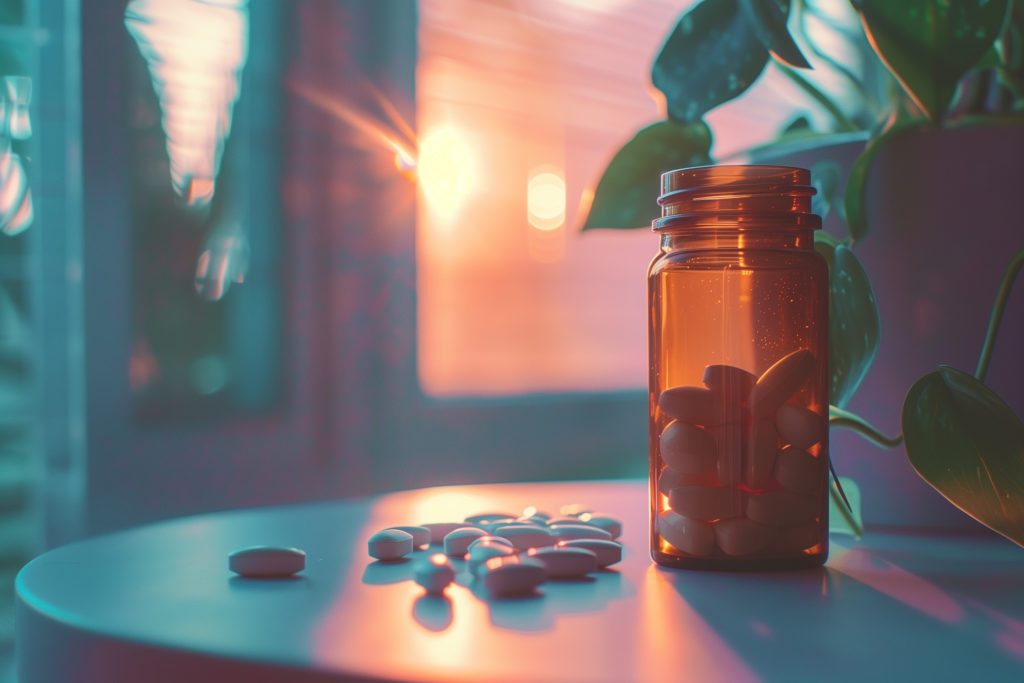
Understanding Melatonin: Its Role in Sleep Regulation and Circadian Rhythms
Unlock the secrets to melatonin’s role in sleep regulation and circadian rhythms. Learn how to optimize your sleep health for better rest and well-being.

When it comes to your sleep, one of the most important hormones is melatonin. Produced in the pineal gland within your brain, melatonin is the single most crucial hormone if you want to have healthy sleep-wake cycles and a normal circadian rhythm. As you'll discover in this article, sleep health is closely tied to melatonin, which is extremely important to your body's rest and recovery.
In this article, we're going to explore melatonin and its role in sleep regulation. We'll discuss how it sets your internal clock, or your circadian rhythm, and how and why it makes you sleepy. We'll also discuss how it regulates your sleep, is linked to the presence and absence of light, and how it is meant to support your body's overall sleep-wake cycle. Let's get into melatonin's first and most crucial function: its ability to regulate your internal clock.
Melatonin Sets Your Internal Clock
Your circadian rhythm, or your internal clock, is one of the most essential parts of your overall sleep health, and melatonin plays a vital role in managing this. Melatonin is the hormone that tells your body when it is time to go to sleep, as it is only produced when it gets dark out or when your body needs to rest and recover (Source: MDPI). Whenever melatonin is dysregulated, you may actually experience a disruption to your overall sleep.
In some cases, if you experience too much disruption to your usual pattern of sleep, you can get diagnosed with a sleep disorder. With researchers confirming that melatonin is the most critical indicator of whether or not you may have a sleep disorder or even a circadian rhythm disorder, it's apparent that it keeps our internal clocks in check. Without this hormone, we would not sleep at the right time and might even feel too sleepy when the day arrives.
This Sleep Hormone Makes You Sleepy
Melatonin is not only the keeper of our internal clocks but also helps us feel sleepy when lying down. Have you ever watched the sunset only to start feeling drowsy, even struggling to keep your eyes open? That's because melatonin production started as soon as the night arrived. Part of the reason that melatonin makes us sleepy is that it actually signals to our brain that we need to rest.
One study published in Neuron showed how melatonin can actually cause adenosine to be produced. Adenosine is essential to the human body and our sleep cycles because it can actually cause us to get sleepier, leading to us feeling the need to rest. This is not just something we experience but something that most mammals do because of our shared sleep cycles. Melatonin doesn’t just help us get to sleep; it can also ensure that we stay asleep!
It Regulates Your Nightly Rest
Melatonin is a multifaceted hormone that does much more than induce sleepiness and keep our internal clocks in check. It also helps us regulate our sleep when we finally lay down for the night. This hormone is a central controller of our sleep, helping us get the rest that we do and continuing to produce melatonin until the morning arrives and we must get ready for the day (Source: Taylor & Francis Online). This is fascinating and another sign of just how vital melatonin is to our sleep health.
Because melatonin ensures that our sleep is adequate and regulated, people have turned to melatonin supplements in recent years to help them combat challenges with their sleep. It makes perfect sense, especially since melatonin is so integral to our sleep cycles. However, did you know that melatonin is also tied closely to the presence and absence of light, increasing or decreasing production as the night falls and the morning arrives?
Melatonin Production is Linked to Light and Darkness
Melatonin production is integral to sleep regulation and our circadian rhythm because it is activated by the presence or absence of light, even when our eyes are closed. When your eyes detect light, this will then activate the pineal gland, and your melatonin production will decrease as your body begins to wake up and come out of its sleep cycle. However, the opposite happens as darkness is detected when your melatonin production increases to make you sleepy.
With melatonin being tied to light and darkness like this, it is no wonder that melatonin is so important to sleep regulation and circadian rhythms! That's why many people do their best to dim the lights and prepare for sleep. If you're able to support healthy melatonin production, you'll see just how imperative this hormone is to help your body's natural sleep-wake cycle.
It Supports Your Body’s Natural Sleep-Wake Cycle
When melatonin production is healthy and normal within your body, it effectively supports your body's natural sleep-wake cycle due to its ability to induce sleepiness and support sleep regulation as tied to the presence and absence of light. Studies have shown that healthy melatonin production leads to better and more consistent sleep schedules. This was even enhanced when people got workouts during daylight hours.
People who suffer from circadian rhythm disorders experience the opposite effect on their sleep: they struggle to stay asleep, wake up at a normal time, feel rested, and go to bed at a decent hour. So, if you want to enjoy a better, more natural sleep-wake cycle, support your body’s natural production of melatonin or take a supplement for the time being so you feel your best and sleep well.
Prioritize Your Sleep Health and Support Melatonin Production
When it comes to your sleep health, one of the best hormones to support your overall rest and regulation is melatonin. Its role in sleep regulation and circadian rhythms is critical, providing much-needed assistance in ensuring you have a normal circadian rhythm, feel sleepy at the right time, and regulate your nightly rest, among other effects. By exercising and living a healthy lifestyle, you, too, can enjoy strong and regular melatonin production and great sleep every night.
FAQ
Can melatonin help with jet lag, and how should it be used?
Melatonin can be effective in reducing jet lag symptoms by helping your body adjust to a new time zone. It’s best taken 30–60 minutes before your intended bedtime in the new time zone. The recommended dosage ranges from 0.5 mg to 5 mg, depending on individual sensitivity. It's also helpful to gradually adjust sleep schedules before travel.
Does melatonin have any long-term side effects?
Use of melatonin is generally safe for most people, with mild side effects such as headaches, dizziness, and daytime sleepiness. However, its long-term effects remain unclear, and it may interact with medications. Consulting a healthcare provider before extended use is recommended.
Can melatonin interact with medications?
Yes, melatonin can interact with various medications, including blood thinners, antidepressants, and immune-suppressing drugs. It may enhance the sedative effects of certain medications, leading to excessive drowsiness. Those taking medications for blood pressure, diabetes, or epilepsy should consult a healthcare provider before using melatonin.
How does melatonin differ from other sleep aids?
Unlike prescription sleep medications, which directly induce drowsiness, melatonin helps regulate the body's natural sleep-wake cycle. It generally has fewer side effects and a lower risk of dependency. However, its effectiveness may vary depending on the cause of sleep disturbances, and it’s not intended for long-term chronic insomnia.
Can you develop a tolerance to melatonin over time?
Research suggests that melatonin does not lead to significant tolerance when used appropriately. However, some people may feel it becomes less effective over time due to lifestyle changes or inconsistent usage. To prevent dependency, it's recommended to use melatonin intermittently and focus on improving sleep hygiene.
What lifestyle habits can boost natural melatonin production?
To naturally increase melatonin levels, exposure to natural light during the day and limiting blue light exposure from screens at night is crucial. Consistent sleep schedules, reducing caffeine intake, and engaging in relaxing pre-bedtime routines, such as reading or meditation, can also support the body's melatonin production.
How can shift workers use melatonin effectively?
Shift workers can benefit from melatonin by taking it 30 minutes before their desired sleep time, helping their body adjust to an irregular schedule. Proper sleep hygiene, blackout curtains, and exposure to bright light during wake hours can also help maintain a healthy sleep cycle despite changing work hours.

Written by
Marie Soukup
Marie Soukup is a seasoned copywriter, editor, and Integrative Nutrition Health Coach with a certificate from the Institute of Integrative Nutrition (IIN). With years of experience working with brands across diverse industries, Marie is passionate about holistic health and crafting compelling content.
Download Pillow
Get help
Press & News
Legal
Connect
X (Twitter)
Company
Copyright © Neybox Digital Ltd.



